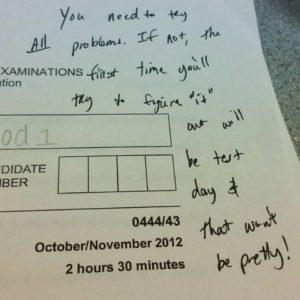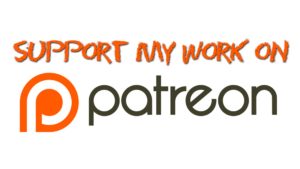How To Make Formative Assessments Powerful Learning Tools
 I’d like to share with you one way to get students to engage in metacognition. But before I do, let me explain why I believe this is one of the most powerful learning experiences a student can experience.
I’d like to share with you one way to get students to engage in metacognition. But before I do, let me explain why I believe this is one of the most powerful learning experiences a student can experience.
It is my opinion that if a formative assessment does not provide feedback to the students it is of little use. In educational training, teacher-evaluation and professional development too much focus is placed on the teacher. And yet, it is clear, that a motivated student will learn without a teacher. Sometimes, groups of students learn DESPITE bad teaching. Students that seek understanding, in any topic, are successful. A quiz or test is more than an evaluation, and in fact, rarely does a student perform in a way that is a surprise to the teacher. We know who will get an A and who will be middle of the road and so on.
A quiz should be a learning opportunity. I didn’t say, “A teaching moment,” with intent because learning doesn’t always come from teaching. We can set up an opportunity before handing back graded quizzes and tests that will be a powerful learning experience for the students. We just need to get them to think about what they did.
The issue here is, how do you get kids to learn from mistakes on their quizzes and tests? I mean, they have years of experience doing the following:
- Quizzes are handed back.
- Kid says to another: What did you get?
- Then they say: Let me see yours … they hold them up side by side seeing if all of the teacher’s marks match.
- “Mister, he got one marked wrong that I got right!”
- And of course you could ask, How do you know you are right? Maybe I didn’t mark yours wrong. Maybe I marked hers wrong on accident. Maybe you’re both wrong!
Reviewing their own work and thinking about their understanding and performance is perhaps the single biggest learning opportunity that students have at their disposal. We are remiss, terribly so, if we do not make full use of these opportunities.
 But HOW do you get someone to think about their thinking? You can’t really make them, can you? It can’t be coerced, tricked or done under threat of punishment. For someone to be willing to engage in metacongition, they must be intrinsically motivated.
But HOW do you get someone to think about their thinking? You can’t really make them, can you? It can’t be coerced, tricked or done under threat of punishment. For someone to be willing to engage in metacongition, they must be intrinsically motivated.
Here’s one way I get students to engage in this.
Before handing back a quiz or test, I review a problem that was largely misunderstood. Then, I have the students practice a similar problem on their own (from the quiz or test, if possible). I walk around the room to check for understanding and then after a few moments, I allow them to help each other on the problem briefly. I continue this as long as I feel is appropriate for the level of competency displayed on the test.
It is absolutely critical that this review is done when the students do not yet have their quizzes or tests back in their possession.
When this method of review is finished, I back their tests and instruct them to find the problems we reviewed as a class. I ask them to figure out what they could’ve done differently on the test to improve their score.
Without such a discussion they will often fail to realize how simple sign errors wreck their grades, or how a simple conceptual misunderstanding is causing all of their work to just … well, collapse. You could encourage students to highlight mistakes and annotate their new understanding by the mistakes, or have them use small sticky notes to write down questions that are still confusing to them.
This is a powerful technique, but like all methods, their effectiveness diminishes if done too frequently or too infrequently. I would not try this method on a test where the class average was high. I believe it is best reserved for those topics students generally struggle with. I would advise against using this method for a summative assessment (end of unit, where the class will be moving on).



